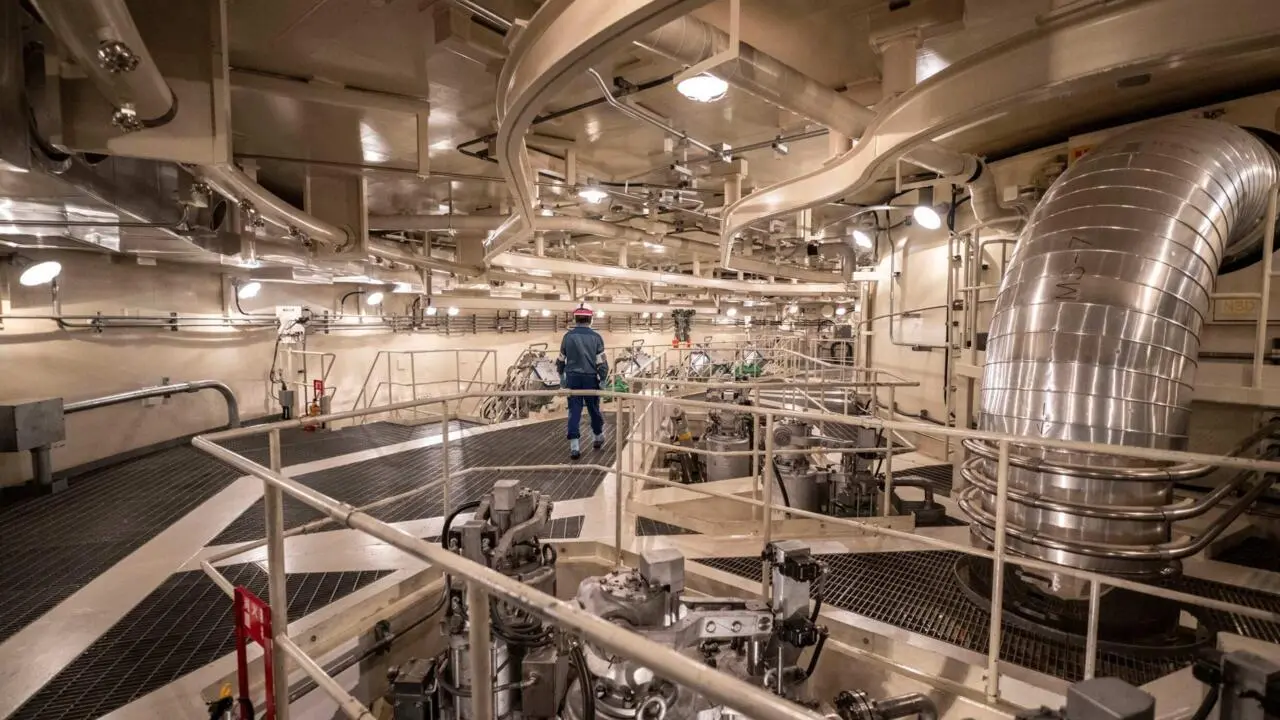Japan pulled the plug on nuclear power after the 2011 Fukushima disaster, but with the G7’s dirtiest energy mix, it is seeking to cut emissions, and atomic energy is making a steady comeback, in part because of AI.
Before the 2011 quake and tsunami, which killed around 18,000 people, nuclear power generated about a third of Japan’s electricity, with fossil fuels contributing most of the rest. All of Japan’s 54 reactors were shut down afterwards, including those at KK. To keep the lights on, resource-poor Japan has hiked imports of natural gas, coal and oil while increasing solar power. But fossil fuels are expensive, with imports last year costing Japan about $510 million a day.
The government is striving for “carbon neutrality” by 2050 and to cut emissions by 46 percent by 2030 from 2013 levels. It wants to increase the share of renewables to 36-38 percent from around 20 percent and cut fossil fuels to 41 percent from around two-thirds now.
Japan aims for nuclear power to account for 20-22 percent of its electricity by 2030, up from well under 10 percent now. Japan in late 2022 decided to accelerate reactor restarts and to extend operating time for nuclear reactors to 60 years from 40.
Nine of Japan’s 33 still-operable reactors are currently online.
Business groups remain worried about power shortages, particularly as Japan seeks to go big in energy-hungry data centres for artificial intelligence (AI).
Making Fukushima fully safe, meanwhile, has also barely begun. Japan last year started to release into the Pacific Ocean some of the 540 Olympic pools’ worth of treated cooling water amassed since 2011.



It really makes me realize how truly fucked the next 30 years are going to be (and beyond of course) that all of a sudden no one cares about climate goals and reducing wasteful energy use “because AI”.
Do y’all not realize ocean food networks are likely about to collapse in the next 10 years and that global warming has been alarmingly increasingly accelerating in the last 5 years?
Sure nuclear power can be great, but that power needs to be used for actually useful power efficient tasks. AI is the least energy efficient solution for most problems it attempts to solve, by several orders of magnitude.
Moreover I think the philosophy of nuclear power advocates is usually something along the lines of “we don’t need to be energy efficient if we have unlimited power!” which is an absurdly naive way to look at the climate crisis that arose out of that same kind of thinking.
In the first place this flavor of nuclear power advocacy ignores that the current system is violently opposed to that kind of shared abundance and wealth at an existential level and that the solutions needed to solve that can never come from a more advanced and powerful nuclear design.
Advocacy for renewable energy on the other hand generally understands this and doesn’t pretend the solution is a seductive fantasy about limitless clean power fueling limitless growth where people in wealthy industrialized nations can all keep living the same lifestyle indefinitely.